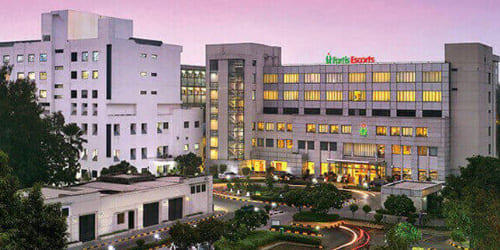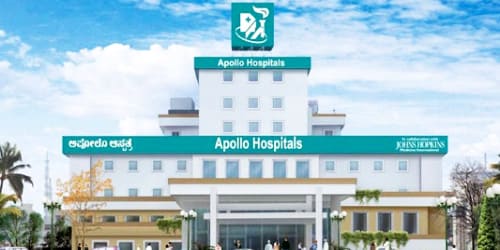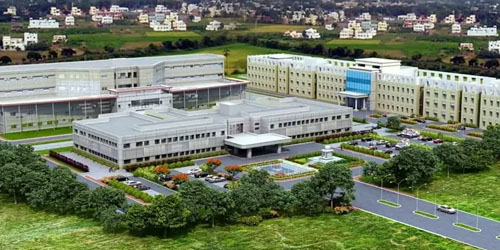1. Benefits of medicine in India |
2. Preparation for organ transplantation |
3. Accompanying persons |
4. Conditions of the procedure |
5. Doctor’s consultation after transplantation |
6. Leading clinics |
India is one of the countries often chosen by patients because of the optimal price-quality ratio of medical care. Thousands of organ transplants are performed here every year. The overall success rate of such surgeries exceeds 90%. Learn more about organ transplants in Indian clinics in the MediGlobus article.
WHY PATIENTS CHOOSE INDIA TO HAVE ORGAN TRANSPLANTATION?

Indian medical centres occupy one of the leading positions in transplantology. Annually, they carry out more than 12,000 organ transplants, including foreign patients. According to the Global Observatory on Donation and Transplantation (GODT), India ranks 3rd in the world after the US and China.
Currently, Indian law allows medical tourists to have transplants from relatives who have travelled with the patient to the country. Only kidney and liver transplants are performed for foreigners, and access to the national donor bank is closed.
It is important to mention here that in developing countries, organ transplantation is rare or not performed at all. This is due to the inexperience or peculiarities of the legislation, the lack of the necessary material and technical basis of the clinics and the lack of specialists’ experience.
The main advantages of the country are the availability of technical capacity, highly qualified specialists and high survival rates after transplantation.
Doctors in India are trained in the UK and the US, and many of them have impressive transplant experience due to their large number of patients. For instance, the average survival rate after a kidney transplant in India is around 98%, and after a liver transplant it is 95%. On top of that, more than 50 medical centres across India have received JCI accreditation.
Often the only chance a patient in need of a transplant has is treatment in India. Today, many countries in Europe and the Middle East come here for life-saving surgery.
To organise your organ transplant trip in India, please fill out the contact form and wait for our coordinator to call you. We will help you with choosing a clinic, doctor and organising your trip.
HOW IS THE PREPARATION DONE AND WHAT IS THE WAITING PERIOD FOR THE OPERATION?
Preparations for transplantation largely depend on the condition of the patient, in which he arrives at the clinic. If the condition is stable, after the completion of all necessary documentation, the medical centre starts an investigation period that lasts 2-3 weeks.
During this time the patient undergoes complex diagnostics, which includes extended laboratory and instrumental methods of research.
If the patient’s condition is not satisfactory, in addition to the examinations, stabilizing measures can be taken to compensate for the underlying disease and prepare the patient for transplant.

WHO ACCOMPANIES THE PATIENT? WHERE DO RELATIVES LIVE?
In 99% of cases, the patient is accompanied by one or more relatives. The medical centres are provided with standard terms of waiting period for the donor organ for the recipient. During this time, the patient is in the guest house of the clinic, here, according to the conditions, 1 companion can stay completely free. For the patient, and the accompanying person three meals a day are provided for the whole duration of the stay.
WHAT IS THE CONDITION OF INDIAN CLINICS?

The clinics in India have a good infrastructure, which includes all the necessary equipment for diagnosis (including the latest MRI and CT devices for navigational 3D research) and for surgical interventions, fully compliant with JCI standards.
The departments in which patients for organ transplants are located are equipped according to international standards. On the territory of the clinic, there are usually pharmacy points and nearby shops.
The guest house rooms in which patients and their relatives live are also equipped with everything necessary, including air conditioning and wireless Internet access. Despite all this, patients coming to India for treatment should understand that outside the medical centre, they can be expected to have an unsanitary condition and a low standard of living for the local population.
Before the trip, MediGlobus staff responded to all the patient questions and helped to organize the most comfortable stay for patients. For more detailed information, leave your application.
HOW LONG DOES THE OPERATION LAST?
On average, the procedure takes about 10 hours. The results of the surgical intervention will be considered successful only with time since it is rather difficult to evaluate the success of the treatment immediately after the operation.
HOW MANY DAYS AFTER THE SURGERY DO PATIENTS STILL LIVE IN INDIA AND WHEN CAN THEY FLY HOME?
After the surgery, the patient usually stays in India for another one to three months, after which he/she can return home. The period of stay largely depends on the patient’s condition after transplant.
WILL PATIENTS NEED TO GO BACK TO INDIA?
After discharge from the clinic and on returning home, the patient usually registers in a medical centre at the place of residence, where he/she passes preventive control according to the appointments he receives in India upon departure. There is usually no need to return to India.
Where are organ transplants performed in India for foreign patients?
Summary
Indian clinics perform more than six thousand organ transplants every year. Foreign patients often choose medical centres in this country for kidney and liver transplants. This is one of the best combinations of price and quality of treatment.
The patient will undergo a comprehensive diagnostic procedure before the transplant. Accompanying persons live together with the patient or in a guesthouse at the clinic. According to the terms and conditions, one accompanying person can stay here free of charge. Three meals a day are included in the price for both the patient and the accompanying person for the entire duration of the stay at the medical centre.
After discharge from the medical centre and returning home, the patient is usually registered at the clinic in the place of residence. Here the person undergoes prophylactic control according to the appointments he/she receives at the Indian hospital upon departure. As a rule, there is no need to return to India. If it is necessary to get recommendations from the doctor who performed the organ transplant, it is possible to organise a face-to-face or remote consultation.
Organ transplants are performed at BLK Hospital, Gleneagles Hospital, Fortis Medical Centre, Artemis Hospital and Medanta Hospital. These institutions are run by transplant surgeons with years of experience.
To learn more about the intricacies of organ transplantation in India or to get advice from the country’s leading transplant surgeon, contact MediGlobus. We will endeavour to answer all your medical questions.
Источники:
- 1. Hindustan Times
- 2. Mint
- 3. Global Observatory on Donation and Transplantation
- 4. Indian Journal of Nephrology: Long-term survival of living donor renal transplants: A single center study
- 5. Clinical Liver Disease: Liver Transplant Outcomes in India











